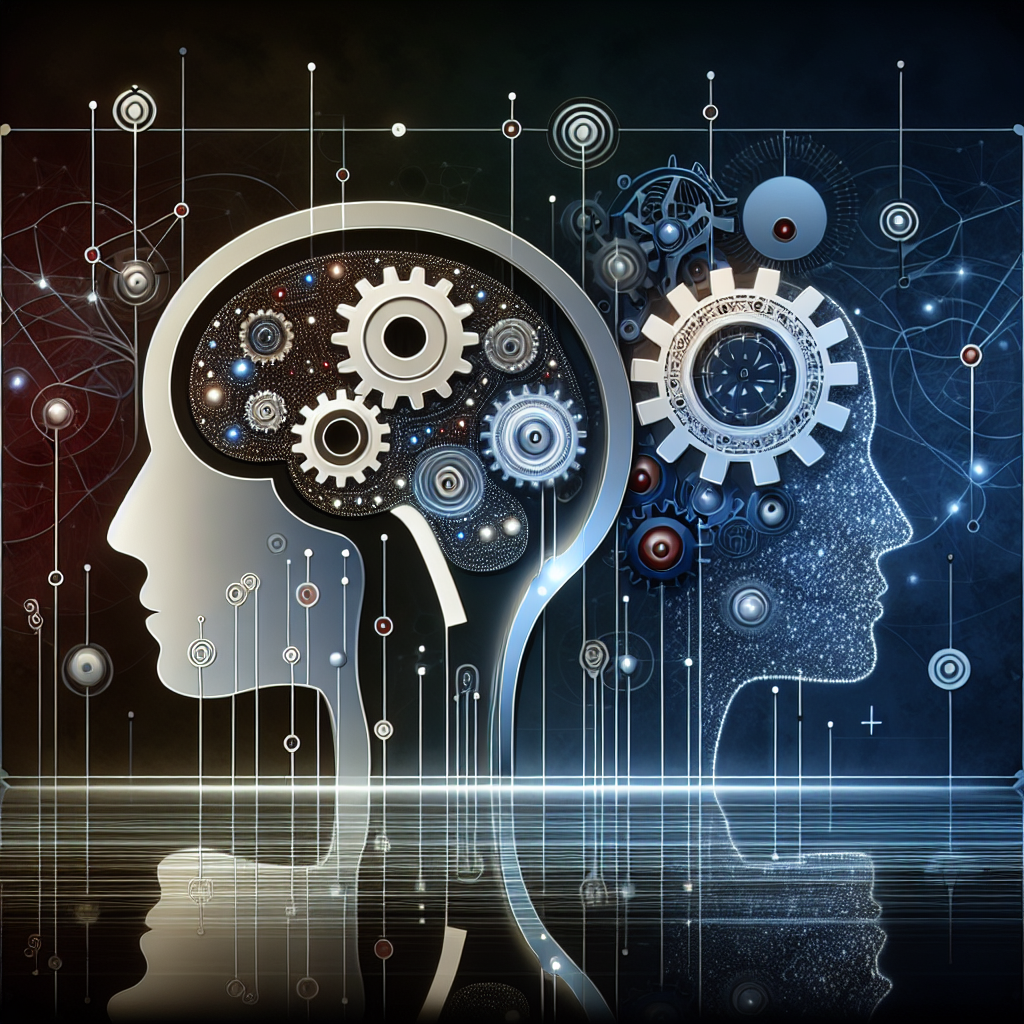Artificial Intelligence (AI) has become an increasingly prevalent and influential technology in our daily lives. From virtual assistants like Siri and Alexa to self-driving cars and recommendation systems, AI is revolutionizing the way we interact with technology and the world around us. One of the key aspects of AI that is often overlooked is its impact on human behavior. Understanding how AI affects our cognitive processes and emotional intelligence is crucial for navigating the rapidly evolving landscape of technology and society.
Cognitive Computing and Emotional Intelligence in AI Systems
Cognitive computing is a branch of AI that aims to mimic human thought processes, such as reasoning, problem-solving, and learning. By integrating cognitive computing into AI systems, developers can create machines that can understand, reason, and learn from complex data sets. This has profound implications for how we interact with AI systems and how they influence our behavior.
One of the key ways in which AI impacts human behavior is through the personalization of content and recommendations. AI systems use algorithms to analyze vast amounts of data about our preferences, behaviors, and interactions to tailor content and recommendations to our individual needs. This can lead to a phenomenon known as the “filter bubble,” where individuals are only exposed to information that reinforces their existing beliefs and preferences, leading to a narrowing of perspectives and potential echo chambers.
Another important aspect of AI’s impact on human behavior is its ability to influence decision-making processes. AI systems can analyze data and make predictions about future outcomes with a high degree of accuracy, which can lead individuals to rely on AI recommendations for important decisions. However, this can also lead to a loss of agency and critical thinking skills, as individuals may defer decision-making to AI systems without fully understanding the underlying processes or assumptions.
Emotional intelligence is another key aspect of human behavior that is influenced by AI systems. Emotional intelligence refers to the ability to perceive, understand, and manage emotions, both in oneself and others. AI systems are increasingly being designed to interact with humans in emotionally intelligent ways, such as recognizing facial expressions, tone of voice, and other non-verbal cues. This can lead to more personalized and empathetic interactions between humans and AI systems, but it also raises ethical concerns about the boundaries of emotional manipulation and privacy.
Overall, the integration of cognitive computing and emotional intelligence into AI systems has profound implications for human behavior. By understanding how AI shapes our cognitive processes and emotional responses, we can better navigate the complex interactions between humans and machines in the digital age.
FAQs about the Impact of AI on Human Behavior
Q: How does AI affect decision-making processes in humans?
A: AI systems can influence decision-making processes by providing recommendations and predictions based on vast amounts of data. While this can lead to more informed decisions, it can also lead to a loss of agency and critical thinking skills if individuals rely too heavily on AI recommendations without fully understanding the underlying processes.
Q: What are the ethical implications of AI systems having emotional intelligence?
A: The development of AI systems with emotional intelligence raises ethical concerns about the boundaries of emotional manipulation and privacy. While emotionally intelligent AI systems can lead to more personalized and empathetic interactions, there is a risk of emotional manipulation and exploitation if not properly regulated.
Q: How can individuals maintain control over their interactions with AI systems?
A: To maintain control over interactions with AI systems, individuals should be mindful of the information they share with AI systems and the decisions they delegate to them. It is important to maintain a critical mindset and to understand the limitations and biases of AI systems in order to make informed decisions.
Q: What are some potential benefits of AI on human behavior?
A: AI has the potential to improve efficiency, productivity, and decision-making processes for individuals and organizations. AI systems can also provide personalized recommendations and content that enhance user experiences and facilitate learning and growth.
Q: How can society address the challenges posed by the impact of AI on human behavior?
A: Society can address the challenges posed by the impact of AI on human behavior by developing ethical guidelines and regulations for the use of AI systems, promoting transparency and accountability in AI development and deployment, and fostering a culture of critical thinking and digital literacy among individuals.
In conclusion, the impact of AI on human behavior is a complex and multifaceted issue that requires careful consideration and understanding. By examining the ways in which AI shapes our cognitive processes and emotional intelligence, we can better navigate the evolving relationship between humans and machines in the digital age. By addressing the ethical implications and challenges posed by AI systems, we can harness the potential benefits of AI to enhance our lives and society as a whole.

